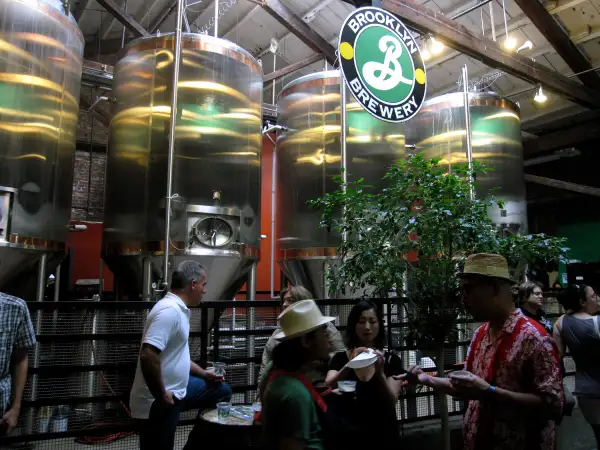How Brooklyn Brewery Sold Out and Still Gets to Call Itself a Craft Beer

This week, Brooklyn Brewery joined a growing list of small American craft brewers to sell a chunk of the business to a giant corporation with global reach. A 24.5% stake in the company was sold to the Japanese conglomerate Kirin Holdings.
In many ways, the move makes smart business sense. With the infusion of cash, "We intend to build another bigger brewery that will enable us to brew 100% of the beer we sell domestically in-house. We intend to build on a strategy that takes Brooklyn Brewery to a fully national brand with a top-class sales and marketing team supporting our distributors," the company announced on Wednesday. "And we will continue to promote craft beer globally through our joint-venture brewery partnerships in Sweden and Norway, and soon-to-be Korea. It’s an exciting time to be a craft brewer."
Quite obviously, despite the business arrangement with Kirin, Brooklyn Brewery still considers itself a craft brewer. The "C" word is a touchy term in the beer world. Many brewers and everyday beer drinkers believe that so-called "crafty" brews like Blue Moon and Shock Top, which seem to be independent but in fact are owned by beer giants like Miller Coors and Anheuser-Busch InBev, are not remotely genuine craft products. Critics say once-independent brands like Blue Point, Boulevard, and Goose Island are also undeserving of the craft label because they have sold out to larger brewers.
So what about Brooklyn Brewery? Well, as one commenter at the beer enthusiast site Beer Advocate dryly noted, "gee, what an interesting percentage" that Brooklyn agreed to sell.
Read Next: The Battle Brewing to Become the Coors Light of Craft Beer
The comment refers to Brewers Association's definition of a craft brewer, which stipulates that production must be small (no more than 6 million barrels brewed annually), and that the business remains mostly independent. Specifically, the association considers a company a craft brewer only if "less than 25 percent of the craft brewery is owned or controlled (or equivalent economic interest) by an alcohol industry member that is not itself a craft brewer."
By selling 24.5% of the company to Kirin, Brooklyn Brewery is just under the cutoff. So the company gets to cash in by selling off a good-size chunk of the company, while still running the business—and while still retaining the use of the all-important term "craft beer."
